The Keys to WhatsApp’s Whirlwind Success
Episódio 005 de Produtos Icônicos
WhatsApp has had a unique, and somewhat unlikely, rise to mobile messenger fame. 🚀
Founded in 2009 and famously acquired by Facebook in 2014 for $19 billion, WhatsApp boasts more than 1.5 billion monthly active users worldwide (as of December 2017) — making it far and away the most widely used mobile messenger app in the world.
Even Facebook CEO Mark Zuckerberg once said on a conference call in regards to WhatsApp’s growth, “No one in the history of the world has done anything like that.”
Então, o que torna o WhatsApp tão especial? O que esse produto tem de especial que contribuiu para sua grande popularidade?
Let’s explore further! 🕵
WhatsApp builds a product, not a company
The idea for WhatsApp stemmed from co-founder Jan Koum’s annoyance of missing phone calls at the gym. Because of this, he and co-founder Brian Acton then decided to build an app that could let their friends know of their “status” when they were unavailable.
As Koum once explained it, “We didn’t set out to build a company. We just wanted to build a product that people used.”
The beauty of WhatsApp is its single-minded product focus. It’s a simple platform that is well-built and reliable, all while maintaining the privacy of the users. 🔐
WhatsApp’s priority from early on was to create a clean, lightning fast communications service that works flawlessly.
Although the app didn’t take off right away, they later added the messaging aspect of the product and it started to gain traction.
And gain traction it did: it’s estimated that more than 1 million new users join WhatsApp and 55 billion messages are sent on the platform every day. 😱
Além disso, os usuários também compartilham 4,5 bilhões de fotos e um bilhão de vídeos por dia.

Ao contrário da maioria das startups, esse crescimento foi alcançado sem nenhum marketing. E, apesar desses números absurdos, o WhatsApp ainda está operando com menos de 100 funcionários (exceto pelos recursos que o Facebook está alocando para eles).
From day one, WhatsApp has focused on making the best messaging app possible — every feature and improvement that has followed has been with this goal in mind.
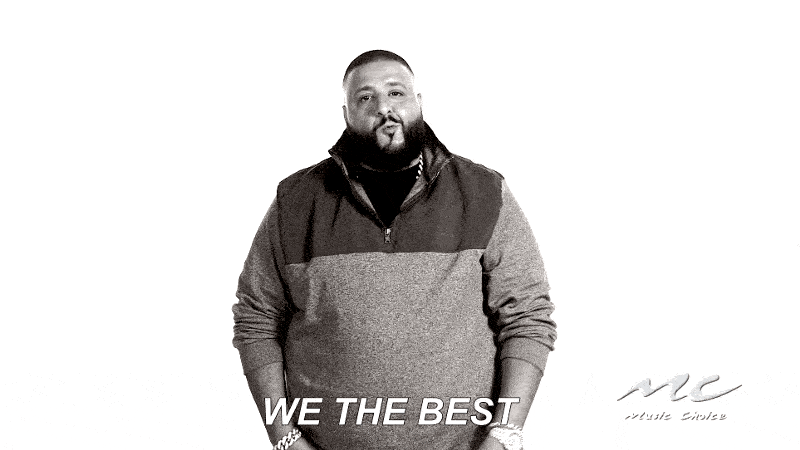
As Koum once pointed out, “WhatsApp’s extremely high user engagement and rapid growth are driven by the simple, powerful and instantaneous messaging capabilities we provide.”
The co-founders also haven’t been ones for fame and attention. Koum and Acton wanted a different company from the beginning — they didn’t even have a sign outside their office door.
In an interview with Wired, Acton said, “We’re the most atypical Silicon Valley company you’ll come across. We were founded by thirtysomethings; we focused on business sustainability and revenue rather than getting big fast; we’ve been incognito almost all the time; we’re mobile first; and we’re global first.” 🌎
Uma experiência sem anúncios
As WhatsApp does not store users’ messages and uses end-to-end encryption, it has never placed advertisements within the interface.
Há alguns motivos para isso.
First, they didn’t want to make the user the product. They wanted to build a service that people wanted to use because it worked. They didn’t want to take user data and turn it into targeted ads.
As they don’t store messages in order to maintain the privacy of the user, they negate the ability for companies to pay for targeted ads on the platform (this is true as well vice versa).
Second, they felt that they didn’t want to have people try to avoid ads in the app.
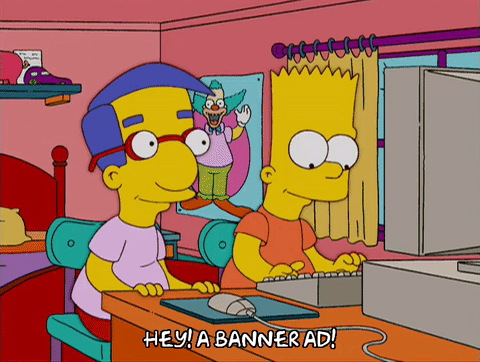
As WhatsApp explained, “Ads suck and ads suck even more on the small screen of a mobile device. We want to provide the best user experience and doing advertising will only get in the way of clean UI.”
They also said on their blog, “No one wakes up excited to see more advertising, no one goes to sleep thinking about the ads they’ll see tomorrow. We know people go to sleep excited about who they chatted with that day…We want WhatsApp to be the product that keeps you awake…and that you reach for in the morning. No one jumps up from a nap and runs to see an advertisement.”
Com isso, o WhatsApp mantém a meta de oferecer uma experiência de usuário confiável, sem truques e sem fricções.
Finally, they figured they could charge a tiny fee directly. Which they did — for a little while, at least. 💵
WhatsApp used to have a 99 cent annual fee, but this was later killed because it wanted to reach more users in places like India and Brazil, as these users don’t necessarily have a credit card or the infrastructure in place to make payments.
While it’s a bit unclear how exactly WhatsApp is making up revenue for the lack of a subscription model, it appears that the shift toward more enterprise uses will have something to do with it (more on that in a minute).
Focus on the product, not tech for tech’s sake
That’s not to say WhatsApp’s tech isn’t great — but it definitely wasn’t an “aha!” moment or some mind-blowing technological breakthrough that created the multi-billion-dollar company.
WhatsApp essentially solved problems by using tools and tech that were already available — not by reinventing the wheel.
So, in a nutshell, the success of the product is defined mostly by the product itself, not the tech — let’s explore a few of the attributes that make the product unique.
First, a major aspect of the product, which seems simple now, is the fact that they built a messenger that connects to contacts from a phonebook. 📲
Muitas outras plataformas de mensagens exigem números ou nomes de usuário separados, o que dificulta a experiência do usuário. A forma como o WhatsApp decidiu trabalhar foi inovadora na época.
Second, before WhatsApp, there was the pain point of people not knowing if someone received their message. 🤷
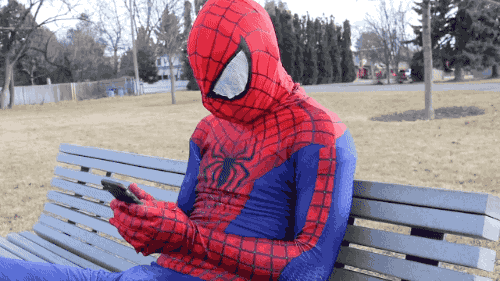
O SMS pode ser inconstante, e nem todo mundo está na frente do computador o tempo todo para receber uma mensagem do Skype, portanto, ter uma plataforma que funcionasse com o seu telefone foi uma visão do WhatsApp que ajudou a equipe a criar algo novo, útil e confiável.
Em terceiro lugar, o WhatsApp reconheceu desde o início que focar o produto o tornava muito mais poderoso. O WhatsApp sabia o que seus clientes queriam e se manteve fiel a isso.
Isso evitou a tentação de fazer várias coisas ao mesmo tempo e perder de vista a oferta principal.
Finally, they’ve understood the importance of immediately setting up everything in a scalable way. Their way of working has stayed virtually the same since the beginning.
Mix these aspects with the fact that they localized to different languages early on — thereby understanding the need to connect with customers globally — and you have a recipe for success. 👩🍳
WhatsApp democratized messaging, calls and video chat
Mesmo antes de o WhatsApp eliminar sua taxa de assinatura de 99 centavos, a empresa já havia oferecido aos seus usuários mensagens móveis pelo preço mais barato de todos os tempos.
Como há muitos lugares no mundo que cobram dos usuários por SMS ou MMS enviado, o WhatsApp era (e ainda é) a alternativa óbvia quando se trata de enviar mensagens.
Posteriormente, a equipe desenvolveu novos recursos sobre a plataforma de mensagens existente, como bate-papos em grupo, compartilhamento de local e mensagens de voz.
This means that you can call, text or video chat with any other user in the world — for free. 📞
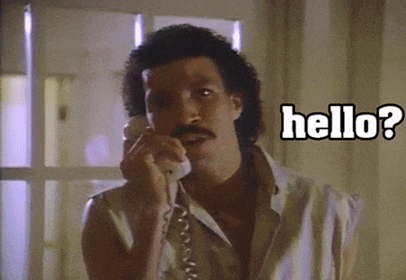
And you didn’t even need to sacrifice your personal data for this free service!
Reliable, Fast, Secure
It’s safe to say that WhatsApp is optimized for reliability — as we touched on earlier, when you send a message on WhatsApp, you know it will get there.
E a já mencionada criptografia de ponta a ponta de todas as mensagens enviadas demonstra ainda mais sua segurança.
O WhatsApp também parece mais rápido do que, por exemplo, o iMessage.
The grey check mark that appears when you send a message in WhatsApp is instantaneous — giving users the feeling of speed compared to the whoosh sound or the loading bar that is part of the iMessage experience…it just feels slower, even if it actually isn’t. ✅

Simply put: WhatsApp’s strengths are its simplicity, performance and service reliability.
Novos casos de uso, possibilidades infinitas
WhatsApp has recently found new applications for its product — even in an enterprise context.
Em setembro, a empresa anunciou que estava criando e testando novas ferramentas para um produto WhatsApp Business, tanto para pequenas empresas quanto para uma solução corporativa para empresas de grande porte.
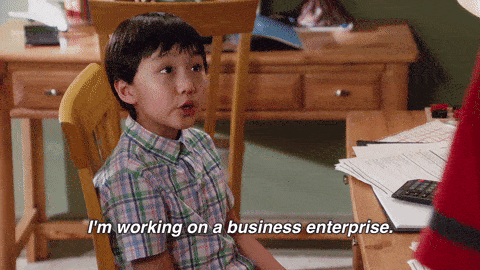
One such example of this in action is from the airline KLM, which now uses WhatsApp as a way to connect with customers regarding flight times, schedule changes and more. ✈
This tool is quite similar to the Messenger services offered through Facebook — so it will be interesting to see if WhatsApp takes off in a similar fashion (especially since this will probably be the route they take to build their revenue model).
Os usuários do WhatsApp também começaram a encontrar novas maneiras de utilizar o aplicativo. Alguns exemplos: empresas que usam o recurso de grupo para comunicação interna da equipe, restaurantes locais que o utilizam como forma de os clientes solicitarem entrega de comida e até mesmo empresas como a Ace & Tate que gerenciam seu atendimento ao cliente na plataforma.
WhatsApp goes to show that even with a simple product, the uses and possibilities can be endless. 🎉
As WhatsApp continues to grow and connect people globally, we’re excited to see where it’s headed next!
What do you love most (or dislike most) about WhatsApp? Let us know in the comments! ✨
Deseja conferir mais produtos icônicos? Leia a série completa aqui!
Esperamos que você tenha gostado desta postagem. Se gostou, espalhe a notícia!
Para obter mais informações importantes sobre startups, marketing de crescimento e vendas:
- 22+ melhores podcasts de vendas que você deve conferir em 2024 - dezembro 21, 2023
- Scripts de chamadas frias para seres humanos reais - 21 de setembro de 2023
- As 25+ melhores ferramentas de vendas para ajudar sua equipe a ser bem-sucedida - agosto 10, 2023
